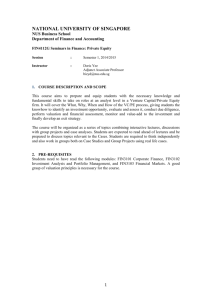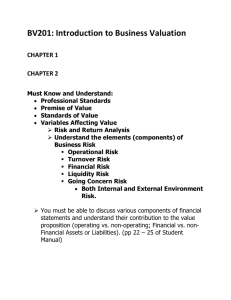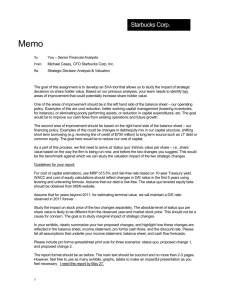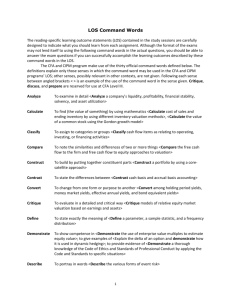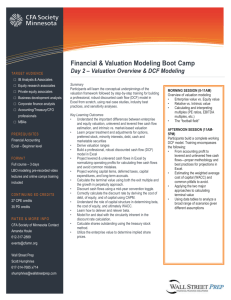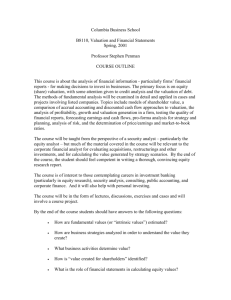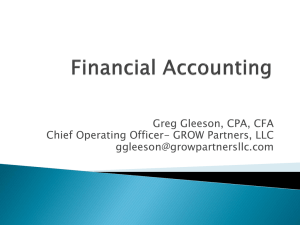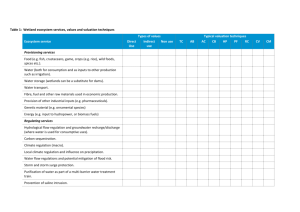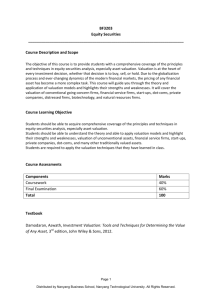Course Syllabus - Columbia Business School
advertisement
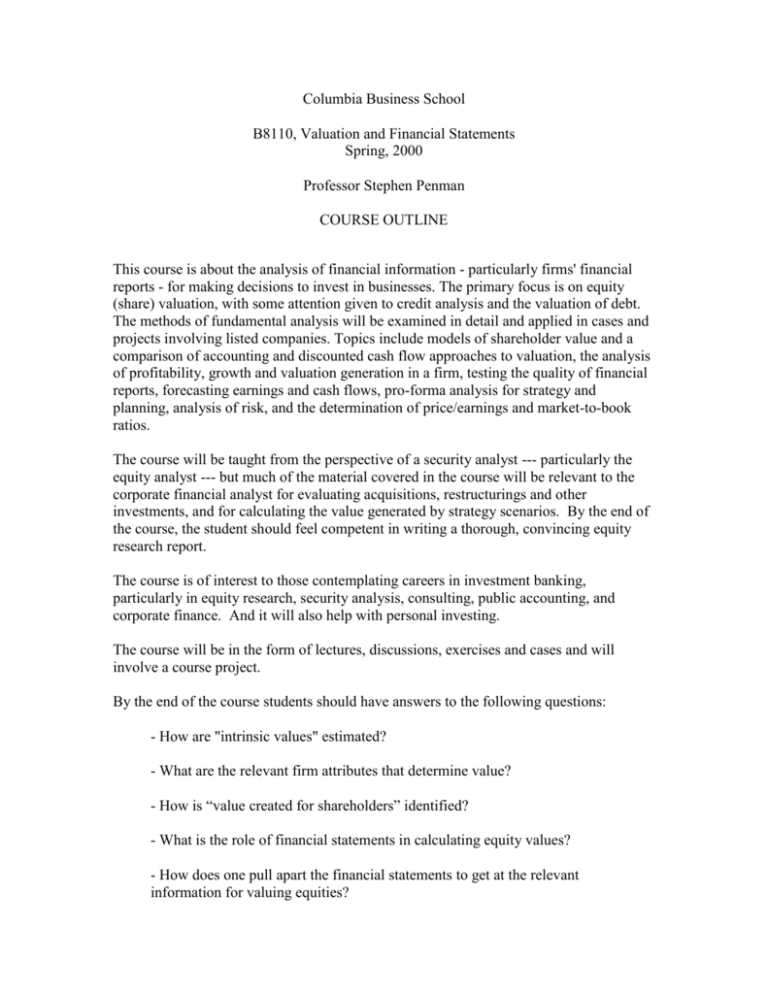
Columbia Business School B8110, Valuation and Financial Statements Spring, 2000 Professor Stephen Penman COURSE OUTLINE This course is about the analysis of financial information - particularly firms' financial reports - for making decisions to invest in businesses. The primary focus is on equity (share) valuation, with some attention given to credit analysis and the valuation of debt. The methods of fundamental analysis will be examined in detail and applied in cases and projects involving listed companies. Topics include models of shareholder value and a comparison of accounting and discounted cash flow approaches to valuation, the analysis of profitability, growth and valuation generation in a firm, testing the quality of financial reports, forecasting earnings and cash flows, pro-forma analysis for strategy and planning, analysis of risk, and the determination of price/earnings and market-to-book ratios. The course will be taught from the perspective of a security analyst --- particularly the equity analyst --- but much of the material covered in the course will be relevant to the corporate financial analyst for evaluating acquisitions, restructurings and other investments, and for calculating the value generated by strategy scenarios. By the end of the course, the student should feel competent in writing a thorough, convincing equity research report. The course is of interest to those contemplating careers in investment banking, particularly in equity research, security analysis, consulting, public accounting, and corporate finance. And it will also help with personal investing. The course will be in the form of lectures, discussions, exercises and cases and will involve a course project. By the end of the course students should have answers to the following questions: - How are "intrinsic values" estimated? - What are the relevant firm attributes that determine value? - How is “value created for shareholders” identified? - What is the role of financial statements in calculating equity values? - How does one pull apart the financial statements to get at the relevant information for valuing equities? - How does traditional ratio analysis help in valuation? - How does profitability tie into valuation? - What is the relevance of cash-flow information? What is the relevance of the accruals in accounting? - How does one analyze the quality of financial reports? - How is financial analysis developed for strategy and planning? - How does one deal with the accounting methods used in financial statements? - What determines a firm's P/E ratio? - What determines a firm's market-to-book (P/B) ratio? - How does one value a growth firm? - How does one evaluate risk? For equity? For debt? - How does one evaluate an equity research report? - How does one trade on fundamental information? Text The main text is 'Financial Statement Analysis and Security Valuation' by Stephen Penman, to be published by Irwin/McGraw-Hill in 2000. This is in manuscript form which will be delivered to students in class as part of the course materials. Assessment The course grade will be calculated 40% from an exam and 60% from a project. The exam will be of 1½ hours duration, with the purpose of testing a basic understanding of the principles of fundamental analysis. The course project may be done individually or in groups of up to four people. Students develop the project as they proceed through the course. The project should involve equity or debt analysis and in most cases is presented as an equity or debt research report. The following are some suggestions: · An equity research report on a company or set of comparison companies. · Evaluation of an acquisition from the point of view of the acquiring firm or the target firm. · An analysis of accounting issues in valuation for a particular industry sector. · Evaluation of a restructuring. · Evaluation of a firm's strategic choices with the goal of creating shareholder value. · Discovery of mispriced firms. · Evaluation of a privatization or an IPO. The submission will be graded on its creativity, demonstration of depth of knowledge, rigor, and clarity in communication. You may choose firms or industry sectors in any country, or make comparisons between countries. Important Dates To be announced. Instructor Stephen Penman 612 Uris 854-9151 shp38@columbia.edu Office hours: to be announced Teaching assistants will be assigned to this course. They will schedule review sessions, as needed, and will be available for individual consultation with students.
